Filter News
Area of Research
News Topics
- (-) Biotechnology (4)
- (-) Frontier (2)
- 3-D Printing/Advanced Manufacturing (78)
- Advanced Reactors (6)
- Artificial Intelligence (8)
- Big Data (5)
- Bioenergy (26)
- Biology (11)
- Biomedical (6)
- Buildings (36)
- Chemical Sciences (14)
- Clean Water (8)
- Climate Change (21)
- Composites (17)
- Computer Science (25)
- Coronavirus (12)
- Critical Materials (9)
- Cybersecurity (8)
- Decarbonization (33)
- Energy Storage (72)
- Environment (54)
- Exascale Computing (2)
- Fossil Energy (2)
- Fusion (1)
- Grid (40)
- High-Performance Computing (6)
- Hydropower (2)
- Isotopes (1)
- Machine Learning (7)
- Materials (35)
- Materials Science (26)
- Mathematics (2)
- Mercury (3)
- Microelectronics (1)
- Microscopy (8)
- Molten Salt (1)
- Nanotechnology (8)
- National Security (5)
- Net Zero (3)
- Neutron Science (11)
- Nuclear Energy (7)
- Partnerships (12)
- Physics (1)
- Polymers (11)
- Quantum Science (2)
- Renewable Energy (1)
- Security (6)
- Simulation (4)
- Space Exploration (3)
- Statistics (1)
- Summit (4)
- Sustainable Energy (69)
- Transformational Challenge Reactor (3)
- Transportation (65)
Media Contacts
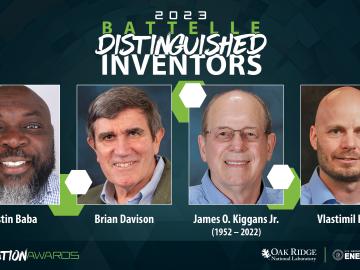
Four scientists affiliated with ORNL were named Battelle Distinguished Inventors during the lab’s annual Innovation Awards on Dec. 1 in recognition of being granted 14 or more United States patents.
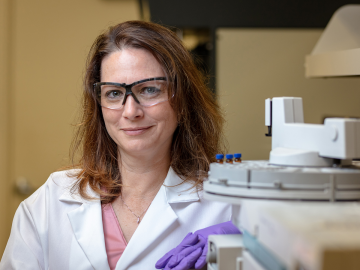
Laboratory Director Thomas Zacharia presented five Director’s Awards during Saturday night's annual Awards Night event hosted by UT-Battelle, which manages ORNL for the Department of Energy.
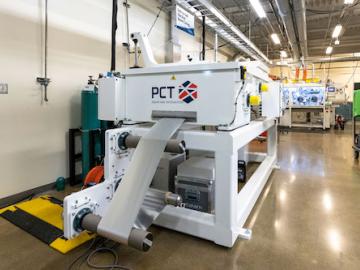
Researchers at the Department of Energy’s Oak Ridge National Laboratory and their technologies have received seven 2022 R&D 100 Awards, plus special recognition for a battery-related green technology product.
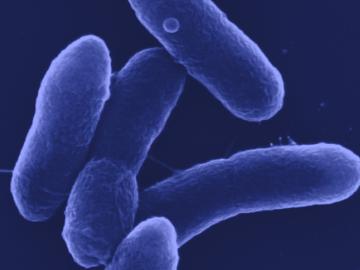
A research team led by Oak Ridge National Laboratory bioengineered a microbe to efficiently turn waste into itaconic acid, an industrial chemical used in plastics and paints.
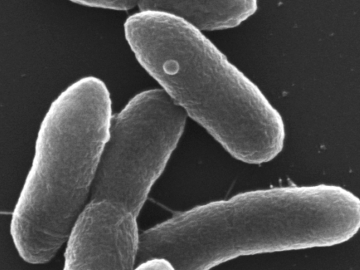
ORNL scientists have modified a single microbe to simultaneously digest five of the most abundant components of lignocellulosic biomass, a big step forward in the development of a cost-effective biochemical conversion process to turn plants into
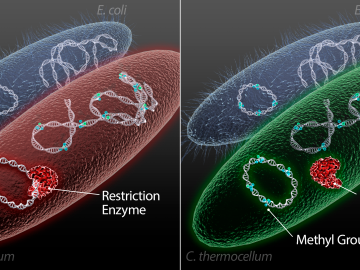
Scientists at the US Department of Energy’s Oak Ridge National Laboratory have demonstrated a method to insert genes into a variety of microorganisms that previously would not accept foreign DNA, with the goal of creating custom microbes to break down plants for bioenergy.




